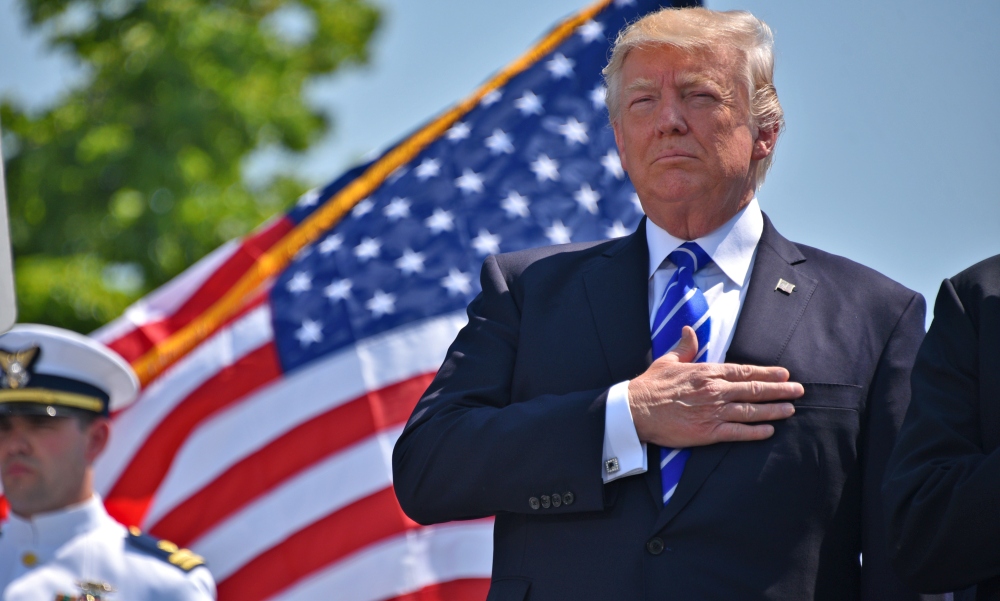Recent news of corporate espionage from China highlights the current administration’s focus on America’s relationship with the Eastern nation — but is substantive change possible?
Amazon’s denials of allegedly compromised security highlights the Trump administration’s increasingly hardline stance on China over the last two years. Tariffs on billions of dollars worth of Chinese goods have escalated into a trade war between China and America (regardless of what the White House calls it). The reason cited? National security.
President Trump has even recently claimed Chinese interference in the midterm elections. “They do not want me or us to win because I am the first president ever to challenge China on trade,” he said. “We are winning on trade. We are winning at every level.”
Yet despite the President championing his tough policies against China, cybersecurity experts say that Chinese cyber-attacks on American interest are higher than ever.
Crowdstrike, a global cybersecurity firm, ranks China as the current number one state sponsor of cybercrime, ahead of Russia, Iran, and North Korea respectively.
While the Trump administration is half right (Chinese spies are a real threat to American business), comparing China’s cyber attacks to Russia’s is ill-informed. While Russian hackers by all accounts are attempting to destabilize American socio-political norms, China’s hacking attempts are both more subtle and more economic-focused. Chinese hackers commit corporate espionage, stealing companies’ intellectual property and trade secrets.
It’s the difference between cyber-terrorism and cyber-intellectual-property-rights-infringement. Criminal apples compared to economic oranges.
Take the case of American Superconductor (AMSC), a Massachusetts-based energy technology company. After creating proprietary power management software for wind turbines, AMSC began a partnership with Sinovel, the largest Chinese wind turbine manufacturer. This partnership turned out to be a ruse on Sinovel’s part. Through corporate espionage, Sinovel created their own wind turbines with stolen AMSC software. This loss of revenue cost AMSC an estimated billion dollars in market value, forcing the company to lay off two-thirds of its workforce — roughly 600 of 900 employees.
But in the cases of both AMSC and Amazon (whose tech was allegedly used to spy on American citizens and government operations), it was American companies who sought out the Chinese manufacturers first. Trump’s tariffs make doing business with China more difficult, yet companies are continuing to go to China for their manufacturing needs regardless. China has a manufacturing workforce of about 80 million people, roughly double the population of California. In 2011, China manufactured 90 percent of the global PC market.
Take the iPhone, for instance. The Chinese factories that assemble the iPhone are massive. Just one can employ up to 350,000 people and produce about half a million iPhones a day (that’s 350 iPhones per minute). These kind of manufacturing statistics just aren’t realistically possible anywhere else, yet they’re the statistics modern international companies demand.
Trump is championed by his base as a businessman. Placing hard sanctions against a global manufacturing hub like China risks his base turning on him. Treasury Secretary Steven Mnuchin, whose department would implement the sanctions, has already opposed any further sanctions against China going forward.
[click_to_tweet tweet=”American companies going into business with China must know the risks involved as this trade war heats up.” quote=”Any American company going into business with China for their manufacturing needs to know the risks involved.”]
Yet somehow despite these risks, American companies can’t seem to resist the siren song of cheap manufacturing costs. Until another manufacturing powerhouse nation can grow to compete with China (or until short-term profit is outweighed by long-term security) American business interests will most likely continue to be stymied by Chinese cyber-theft for the foreseeable future.
James M Lane, AINS was born into this world without his consent an ornery 60 year old man with a full beard. He has worked in the insurance industry for the last half decade, and was a foreign language preschool teacher for years before that. He writes horror in his spare time. Follow him on Instagram for deliberations on pro wrestling and beards.





































Pingback: China no longer dependent on U.S. for smartphone components